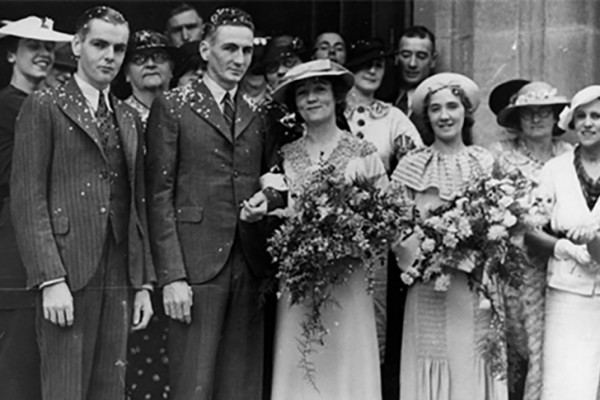Barbara Schaal chosen president-elect of AAAS
Barbara A. Schaal, PhD, dean of the Faculty of Arts & Sciences at Washington University in St. Louis, has been elected president-elect of the American Association for the Advancement of Science (AAAS), the world’s largest general scientific society. She begins her three-year term as an officer and member of the AAAS Board of Directors’ Executive Committee on Feb. 17.
Cyanobacterium found in algae collection holds promise for biotech applications
Cyanobacteria are attractive organisms for the bio-production of fuels, chemicals and drugs but have the drawback that most strains in common use grow slowly. This week scientists at Washington University reported that they have recovered a fast-growing strain of cyanobacteria from a stored culture of a cyanobacterium originally discovered in a creek on the campus of the University of Texas at Austin in 1955. The new strain grows by 50 percent per hour, the fastest growth rate ever reported for this type of bacteria.
Valentine’s Day with Callaway and Graae
In 1980, Liz Callaway and Jason Graae made their off-Broadway debuts in “Godspell.” Three decades later, the pair are Broadway veterans, each boasting a long and storied career. On Feb. 14, these old friends will reunite at Washington University for “Happily Ever Laughter: A Valentine’s Party.” The special one-night-only performance is presented by the Edison Ovations Series.
Book traces history of racism, race-based pseudoscience
When it comes to race, too many people still mistake
bigotry for science, argues Washington University in St. Louis
anthropologist Robert W. Sussman, PhD, in his new book, “The Myth of
Race: The Troubling Persistence of an Unscientific Idea.”
Friends know how long you’ll live, study finds
Young lovers walking down the aisle may dream of long and healthy lives together, but close friends in the wedding party may have a better sense of whether those wishes will come true, suggests new research on personality and longevity from Washington University in St. Louis.
Wash U Expert: Politics of disaster relief spurred aggressive preparations for East Coast storm
Given past voter backlashes against natural disaster responses that were considered to be inept, it’s no surprise that New York City Mayor Bill De Blasio and other politicians took aggressive measures to prepare for the megastorm now lashing the East Coast, suggests Andrew Reeves, PhD, an expert on the politics of disaster relief at Washington University in St. Louis.
Student protest leader Riggs marching for a better St. Louis
Reuben Riggs, a senior in Arts & Sciences at Washington University in St. Louis, says the fight for social justice is the foundation of a liberal arts education and he has embraced that fight in light of events in Ferguson in 2014. “To know that and not go out and engage when it’s happening on my doorstep would go against everything I believe in,” said Riggs, who also is an Ervin and a Civic Scholar.
Digging Kazakhstan’s past helps students find themselves
Much more than an archaeology course, a six-week
summer field practicum on the history of Central Asia, led by Michael Frachetti, PhD, associate professor of archaeology in Arts & Sciences at Washington University in St. Louis, offers students
from all disciplines the opportunity to immerse themselves in the past and present culture of Kazakhstan.
Arts & Sciences grants support classroom innovation
This spring, students in Ignacio Infante’s “World-Wide Translation: Language, Culture, Technology” will help create positive experiences for critically ill children visiting St. Louis. The work is made possible in part by an Arts & Sciences grant, one of 15, designed to support engaging and transformative classroom experiences.
Eric Warren launches Jazz at Holmes Jan. 22
Jazz bassist and composer Eric Warren will launch the spring Jazz at Holmes series with a free concert Thursday, Jan. 22. In all, the weekly series will feature 12 performances, including evenings with acclaimed guitarist John Abercrombie and saxophonist Eric Person, a St. Louis native now living in New York.
View More Stories

